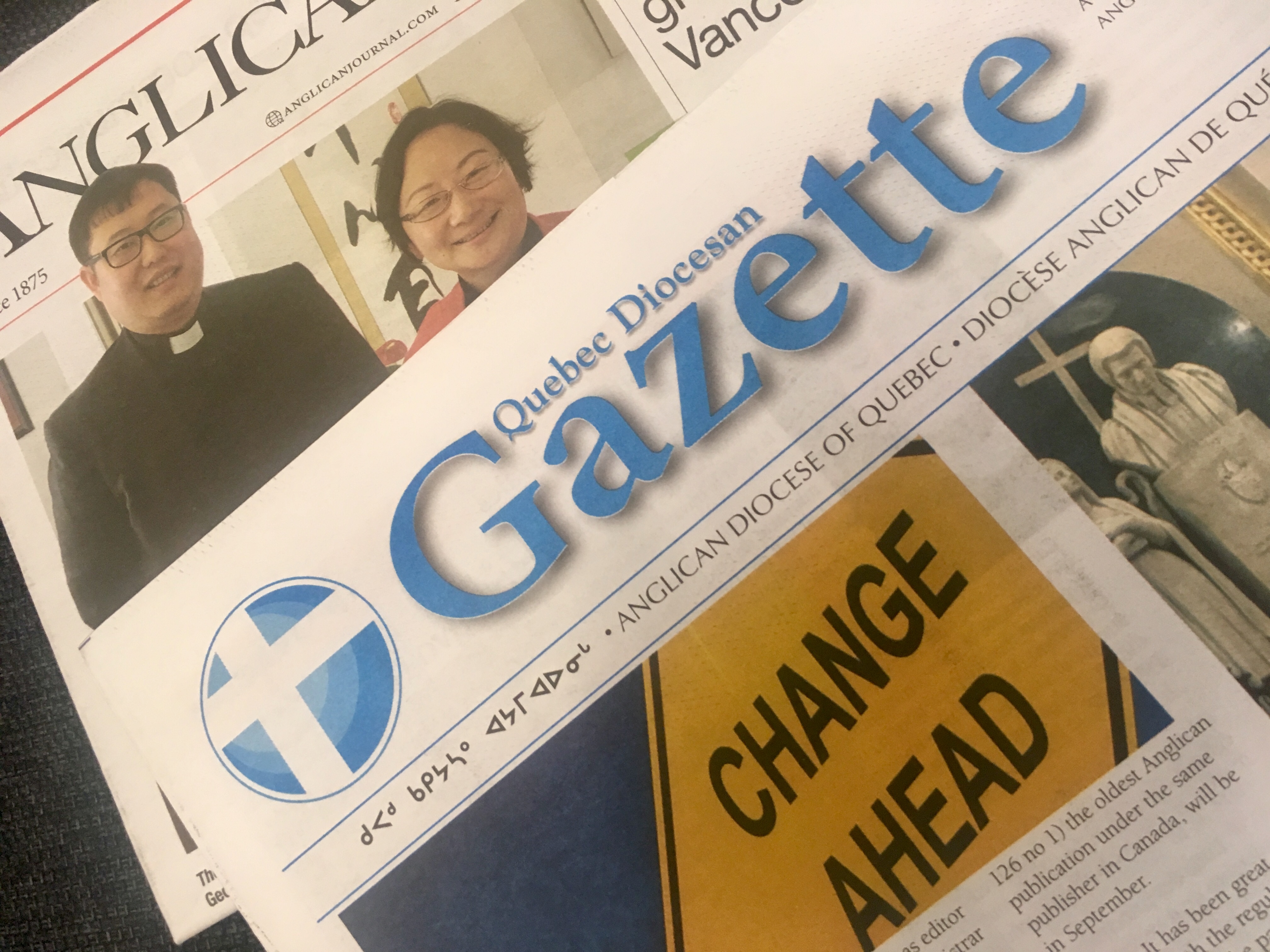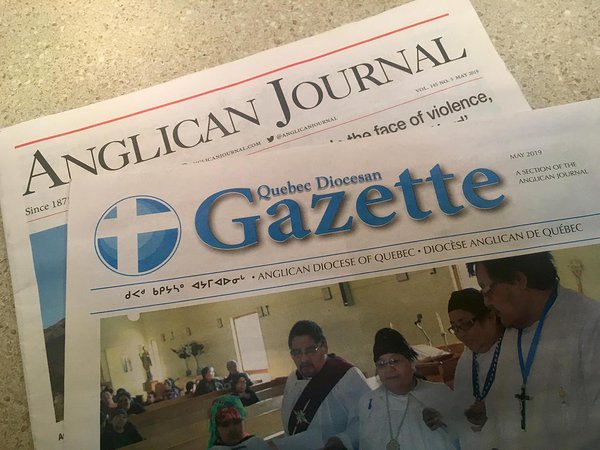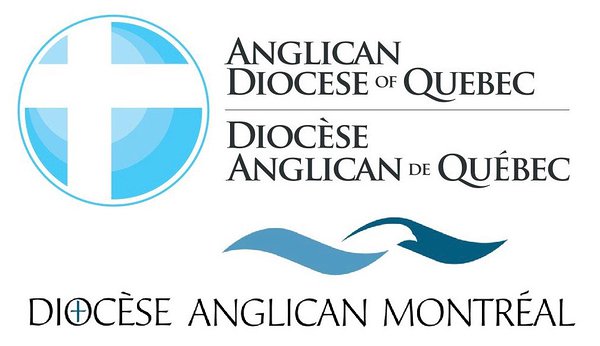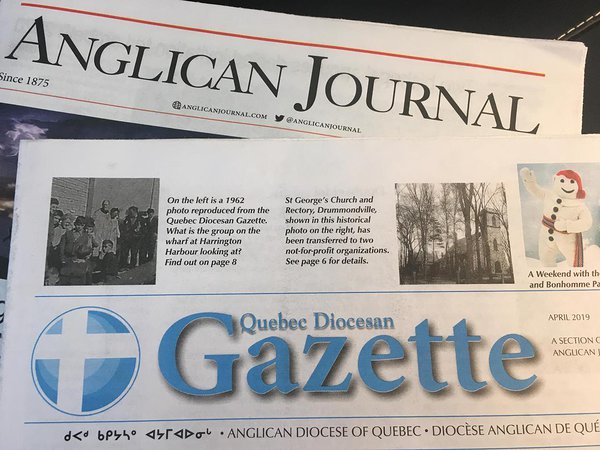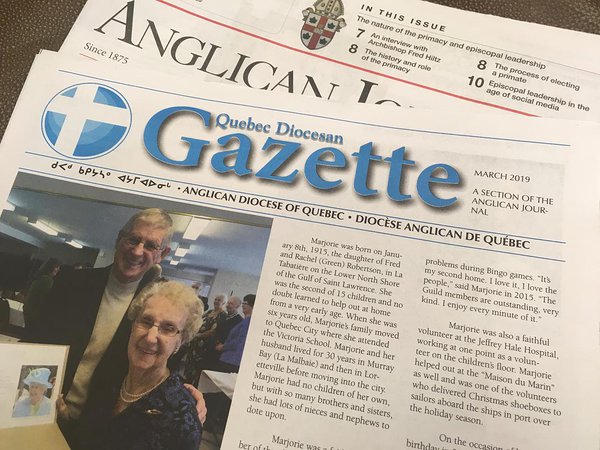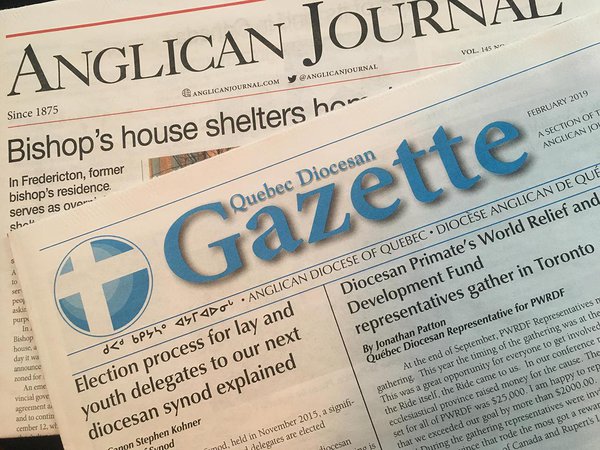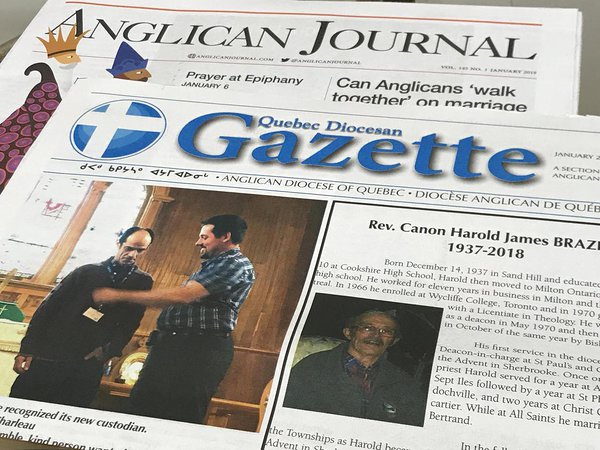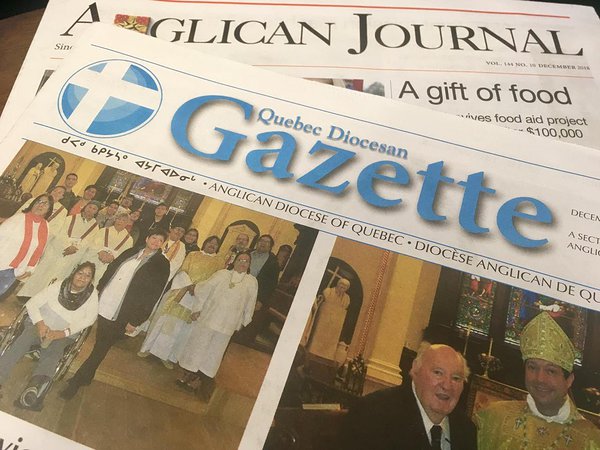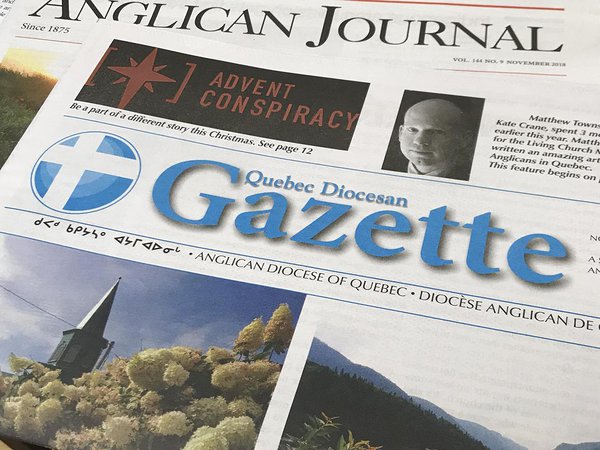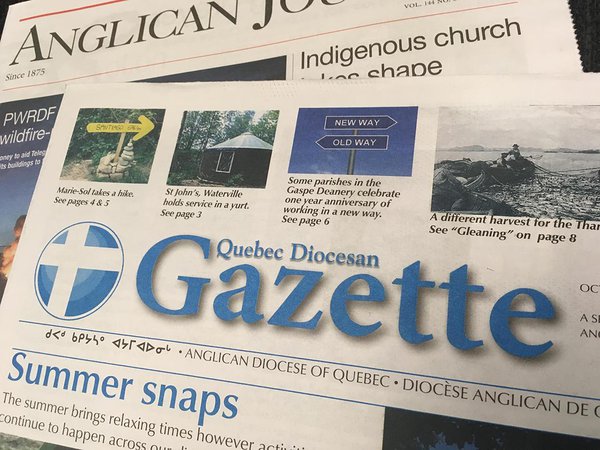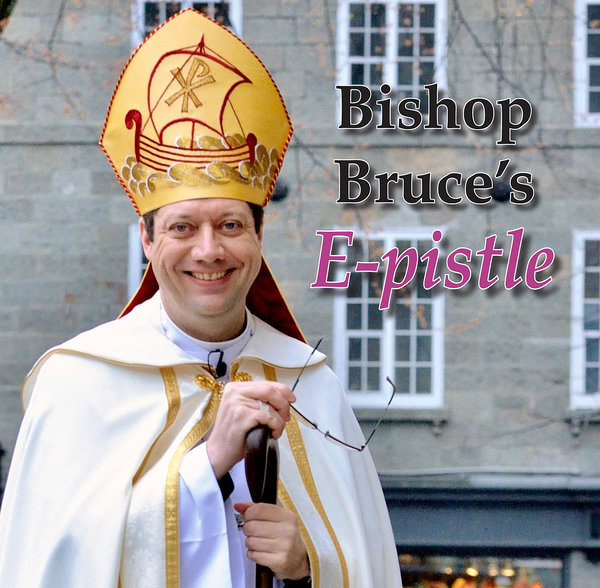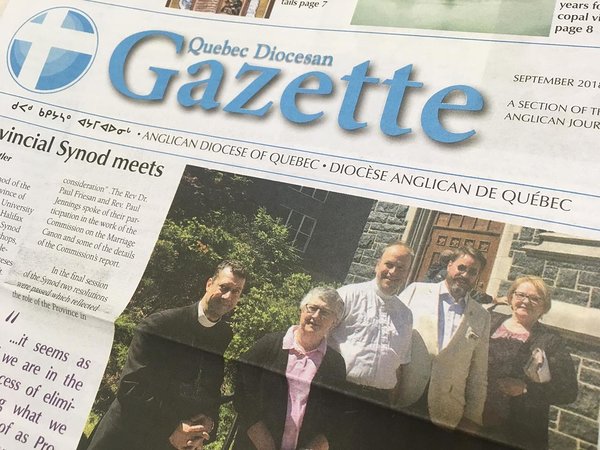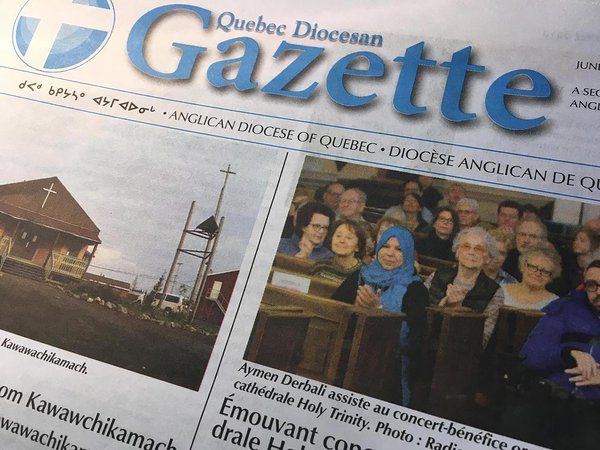Since
being called to serve as your bishop (four years ago next week!) this has
become what you might call my “go-to” prayer, and you should each have a copy
of it on a little bookmark that was hopefully waiting for you. If not, there’s
other copies. It goes like this:
O God, you have called your servants
to ventures of which we cannot see the ending, by paths as yet untrodden,
through perils unknown. Give us faith to go forward with good courage, not
knowing where we go, but only that your hand is leading us and your love
supporting us; through Jesus Christ our Lord. Amen.
One
of the reasons I love this prayer is because it’s realistic but encouraging,
honest but hopeful. It doesn’t deny difficult truths, but neither does it
succumb to sterile pessimism. It was written in the first part of the twentieth
century by a Church of England priest named Eric Milner-White, who among other
things was one of the founders of the religious community to which I belong,
the Oratory of the Good Shepherd. Like many good prayers from another time and
place, it sounds like it was tailor made for us here and now.
This
prayer begins by acknowledging that we have been called “to ventures of which
we cannot see the ending.” However, you may have read recently about some statistics
that suggest we can, in fact, see the
ending of the venture that is the Anglican Church of Canada. Recently compiled
numbers reveal that nationwide our denomination has lost 50 per cent of its
members in the past 25 years. If that trend continues, it’s projected that
there won’t be any Anglicans left in Canada by the year 2040.
I
don’t know where you’re going to be 20 years from now, but—God willing—I’ll
still be around and presumably still be an Anglican, so there will be at least
one of us left! I suspect there will be others, too. In fact, one of the recent
responses to that statistical projection has been a number of younger Canadian
Anglicans publicly declaring, “I’m not going anywhere!” And as one of my fellow
bishops helpfully wrote just last week about these grim-sounding statistics,
“The Christian church has always been one generation away from extinction, and
so our situation is not unique.”
That
we’ve grown smaller as a church shouldn’t come as a surprise to anyone here.
It’s what we see each Sunday as we gather in congregations across this vast
diocese, or as we drive by deconsecrated church buildings that at one time were
home to active worshipping Anglican communities. In fact, we’ve been
consistently growing smaller in number since the early 1960s. That’s when
membership in the Anglican Church of Canada and a number of other Christian
denominations in this country hit its peak—60 years ago.
The
Diocese of Quebec feels the effects of this numerical decline more sharply
because we’re an historically English-speaking church in an overwhelmingly
French-speaking (and historically Roman Catholic) land, often located in
communities that are demographically skewed older, and we’re in a part of the
world where the turn away from religious practice of all kinds has been
particularly intense. So we’re small in number, and probably going to get
smaller still. But we know we’re not alone, and in any case that’s not the end
of our story.
One
of the first things I did in setting up my office at Church House a few years
ago was to put up on the wall a big map of the Diocese of Quebec—all 720,000
square kilometres of it. And on that map I placed a little coloured pin for
each of the diocese’s congregations—all 68 of them.
After
I’d put in the last of the pins, I stepped back and looked at the map with a
mixture of awe and panic: awe at how Anglican Christianity had over more than
two centuries spread across so vast and diverse an expanse, and panic at
wondering how in the world I was going to help support these scattered
communities, all of which are small. Our own statistics tell us that there are
now just over 3,000 Anglicans who belong to one of our diocese’s congregations,
and that on an average Sunday about 800 of us are in church.
The
other thing I realized when I stepped back and looked at the map was that the
colour I had unconsciously chosen for the pins marking the congregations was
yellow, and my instant thought was that they looked like a bunch of scattered
mustard seeds. A clump in the Eastern Townships (I say “clump” with affection)
around the U.S. border; and then kind of hugging both sides of the mighty St.
Lawrence; and then up the North Shore out to the coast; up to Kawawachikamach,
little one got blown up there; and up to the Gaspé Peninsula; and a couple more
got blown out to the Gulf of St. Lawrence on the Magdalen Islands.
In
the gospels, Jesus calls mustard seeds “the smallest of seeds.” But he also
says that when sown, they have the potential to grow into something great and good.
And faith the size of a mustard seed, says Jesus, can move mountains.
What
I’ve encountered in my travels across the length and breadth of this diocese
over the past few years are many examples of just that: small but faithful
communities, small but faithful efforts that each in their own way have been
offered up to and blessed by God, and are revealing something of the kingdom of
God here among us. As another fellow bishop recently said, a bishop named
Stephen Conway, who’s the Bishop of Ely, a very historic and significant
diocese in the Church of England, “The church does not let its small attendance
prevent it from being a light to the community and a place to which people turn
for support and encouragement.” So even great, historic dioceses of the Church
of England are facing something of the same challenges we are.
I’m
not going to name any specific examples now of those points of light, of those
mustard seeds, because over the next couple of days together we’re going to be
hearing a sampling of some of those stories of support and encouragement from
fellow members of our diocesan family. We’ll also be hearing from a number of
special guests about some of the mustard seeds they’ve encountered in the
patches of the church they serve.
We
of course want our mustard seeds to grow, but there’s more to growth than
numbers. We know that’s a cliché. It’s easy to say, in a diminishing church
numerically, but I believe it. At one point in Luke’s gospel the disciples come
pleading to Jesus, saying, “Increase our faith!” They don’t come to see Jesus,
saying, “Increase our attendance!” or, “Increase our dividends!”—however nice
both of those might be. Because bigger numbers, whether they’re in the
“communicants” column of our parish vestry books or on the “positive” side of
our parish ledger, are really only meaningful if we’re also growing in our
Christian discipleship.
That’s
something else I’ve regularly encountered in my visits with Anglicans across
our diocese: a desire expressed by many, pretty much everywhere I go, to better
understand the Christian faith they profess, to grow spiritually, and to apply
their faith in Jesus Christ in concrete ways, both as individual Christians and
as congregations.
As Christians, we
claim to be a people who, though living in the world, “do not belong to the
world.” As we’ll be reminded on Sunday, the feast of Christ the King, our
primary allegiance is not to crown, country, tribe, political party, family, or
even church. Rather our first and foremost loyalty is to God as revealed in
Jesus Christ and to the heavenly kingdom his incarnation has inaugurated and
which we, his disciples of today, are commissioned to reveal on earth.
To
live into this radical and counter-cultural claim and mission, we necessarily
need to conduct ourselves differently from the dominant culture—“the
world”—that we inhabit. And helping Christians do that is one of the roles of
the church, described by American theologian Stanley Hauerwas as an institution
“calling people to be an alternative to the world,” so that we can become “a
different people with different habits and practices from that of the world.”
What’s
supposed to set us apart as followers of Jesus Christ is not so much our
buildings, our rituals, or even our doctrines. What’s supposed to set us apart
as followers of Jesus Christ is that we do things differently, according to a
different ethic—whether it’s how we deal with people, how we make decisions,
how we manage our money, how we treat the environment. The church is not
primarily, as Hauerwas has said, “about providing for greater participation;
it’s about being a people in a hostile environment capable of sustaining the
witness to Jesus of Nazareth, who has brought to us a way of life that we know
to be life giving.”
That’s
why the first term used in the New Testament to describe Christians is
“followers of the Way.” Because, as Anglican monk Brother Geoffrey Tristram
once put it, “Christianity has never been a static
body of doctrine, but rather is a dynamic way of life.” That’s what
growing in our Christian discipleship means: being equipped to more effectively live and speak the gospel of Jesus
Christ in our everyday lives, and to serve as Christ’s ambassadors whenever and
wherever with whomever.
For our diocesan church, the task of making and equipping
disciples is, in the words of that opening prayer, one of those “paths as yet
untrodden”—or at least it’s a path that hasn’t seen much traffic for some time.
A lot of our collective time and energy over the years has been channelled into
managing decline. And while we’ll need to continue to be good stewards of the
buildings, cemeteries, and investments with which we’ve been entrusted—and
helping congregations wishing to remain open to do so as long as they can—we
also need to be reminded that surviving just as we are isn’t enough. God calls
us to so much more, and our communities and the world need us to be so much
more. We need to remember that the church’s primary task remains making and
equipping disciples of Jesus Christ to participate in God’s redeeming work in
the world.
And it’s an opportune time to remember this because not only do
we already have many people in our diocese who want to become better equipped
as disciples of Jesus, but the means to help do that equipping are already at
hand. We have wonderful teachers of faith among our clergy and laity. We’re
developing new partnerships with centres of Christian formation here in Quebec
and beyond. Even the necessary communications technology (like high-speed
internet access) is now available to almost every Anglican in the diocese,
wherever they might live—even on the Lower North Shore, hallelujah. We already
have everything we need for our mustard seeds to grow.
Some of this discipleship work has already begun, and my hope is
that it will broaden and deepen in the years ahead. In doing so, we may find that
being attentive to our spiritual growth also positively impacts our numerical
growth, as others are drawn by our Christ-like love for one another and to the
world, because those are among the fruits of Christian discipleship.
Another path “as yet untrodden” is this very gathering. The last
time our diocesan Synod met was in 2015, it was decided to make significant
changes to its size and composition. So this Synod is about half the size of
the last one; lay representation is based on deaneries and regions, not individual
congregations; and a cross-section of the diocesan clergy (10 in total) are
members of Synod, rather than the entire active clericus. This is a new way of
meeting for all of us, and we’ll be seeking your feedback on what you think
works well, what works not so well, and what may need changing in the future.
This Synod is also a little different in that it’s relatively
light on legislation. Canons and the constitution are important for the
ordering of our common life as a diocesan church, but so too are prayer, Bible
study, fellowship, and encouraging and building up one another—and that’s how I
hope we’ll be spending most of our time together in this place: a space
consecrated for four centuries now to prayer, Bible study, and Christian fellowship.
Part
of the process in choosing a new bishop for this diocese four years ago
included each of the candidates describing what kind of leadership we might
bring to the diocese in 500 words or less. I wrote (in part) the following: “I
would seek to offer a kind of leadership that is chiefly characterized by hope.
These are challenging times for our church, and in the midst of these
difficulties, it can be easy to succumb to what Pope Francis calls ‘sterile
pessimism’ or the ‘evil spirit of defeatism.’ Yet as Christians we are called
to be a people of hope—the sure and certain hope of Christ’s resurrection and
the redemption of all things, including the church.”
In
the four years since I wrote that, I confess that pessimism and defeatism
against which Pope Francis warned have at times been real temptations—but
they’ve always been fleeting. They’ve always, always given way to hope.
Because I’ve seen so many signs of hope in these few years
of serving as your bishop, not just in projects and initiatives and ideas, but
in our people:
- in
the faithful and dedicated clergy of this diocese, who are a gift to call
colleagues in ministry. You’ve really got great priests serving you;
- in
the diligent and committed staff and officers of the Synod, who it’s a joy to
work with on a daily and weekly basis, who love the diocese and serving it;
- in
the lay leaders of this diocese, whether they serve as lay readers, wardens,
secretaries, treasurers, Synod members, deanery council or diocesan executive
council members, musicians, servers, Sunday school teachers or youth group
leaders, in ACWs or altar guilds;
- in
the faithful people who hold no particular office or position, but who form the
faithful backbone, week after week, that is the body of Christ in the Anglican
Diocese of Quebec.
You
are all not only living, breathing signs of hope, but you also have my profound
thanks for all that you do, and it is my privilege to serve you and to serve
with you.
It
seems fitting, in this particular holy place, to quote the Bishop of Rome a bit
more, because Pope Francis spends a lot of time talking about hope. He’s a pretty
hopeful guy. The Christian hope, Pope Francis says, “is not being afraid to see
reality for what it is and accept the contradictions. [...] This hope invites
us to enter the darkness of an uncertain future and to walk into the light.”
Christian hope isn’t some vague, optimistic wish that things might turn out
okay. “Christian hope,” says Pope Francis, “is the expectation of something
that has already been fulfilled.”
What’s
been fulfilled is the victory of Christ over the powers of evil—including even
death—through Jesus’ own life, death, resurrection, and ascension. What’s been
fulfilled is Christ’s promise that not even the gates of hell will prevail
against his church. Isn’t that liberating? We of course care about the church’s
future, but we don’t have to feel guilty or anxious about the church’s future,
because in Christ the church’s future—indeed, all creation’s future—has already
been secured in an ultimate way.
So
when your starting point is that Christ has already won the victory over the
forces of evil, including death itself, then we’re liberated. We’re freed to
channel our energy and resources into staying true to the church’s mission,
which is helping make present God’s future. So whether the church as we know it
has 20 years left or 20 centuries left doesn’t really matter, because our
Christian hope and our Christian calling don’t change.
We’ve
together been called to this “venture of which we cannot see the ending.” One
dictionary definition of “venture” is “a risky or daring journey or
undertaking.” So rather than playing it safe, what risks can we undertake for
Christ’s sake? Rather than exhausting ourselves trying to maintain a way of
being the church that doesn’t fit our reality anymore, what new and daring
journeys can we embark on for the sake of the world?
If
you add two letters to the beginning of “venture” you get “adventure,” and
that’s how Christianity has sometimes been described—as an adventure. It
doesn’t feel that way a lot of the time, eh? It feels like an obligation or a
downer, ponderous, but Christianity, the Christian faith at its best is an
adventure, and that’s defined as “an unusual and exciting, typically hazardous,
experience or activity.” What experience or activity could be more unusual,
exciting, or potentially hazardous than making and equipping disciples of Jesus
Christ to be his witnesses, to be Good News, to challenge the forces of evil
and darkness and death in the world that surround us, and instead to reveal
God’s kingdom of peace, justice, and reconciliation in every corner of the
diocese where we are still present?
I
cannot see the ending of this venture (or adventure) to which God has called
us. I do not know the path we have to trod, or how we will navigate the many
perils still unknown. But I do have faith—faith that even though I do not know,
I don’t have to know, because there is one whose hand is leading us, whose love
is supporting us, as we journey through the unknown together and in sure and
certain hope.

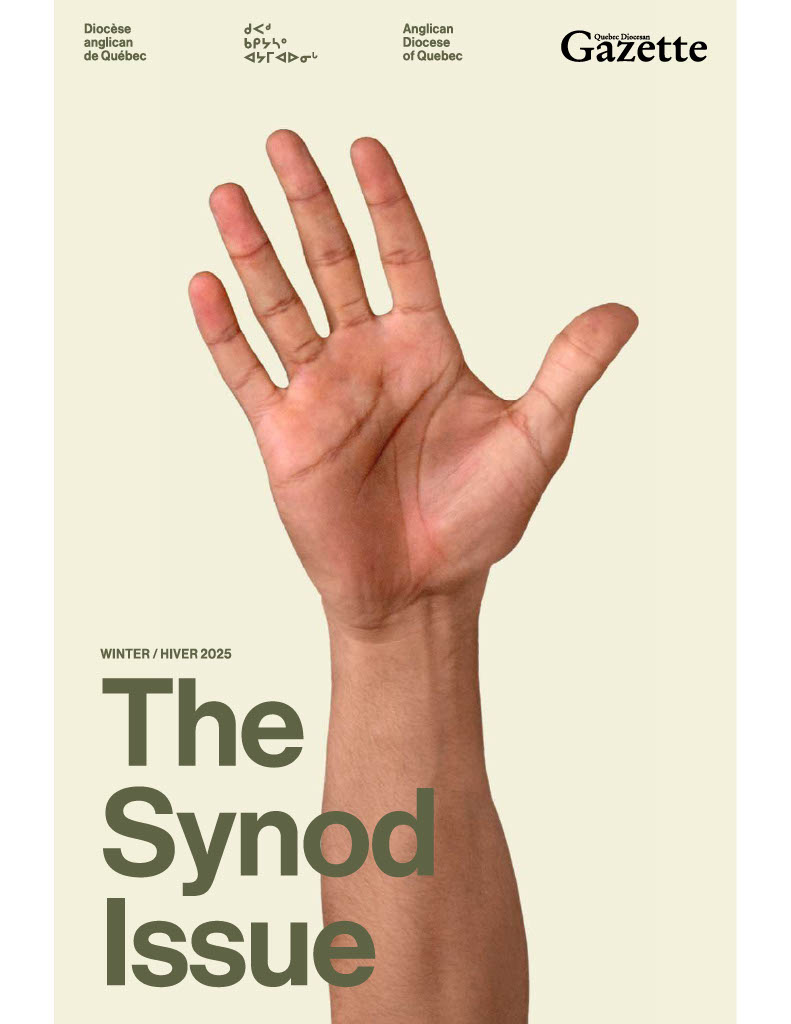



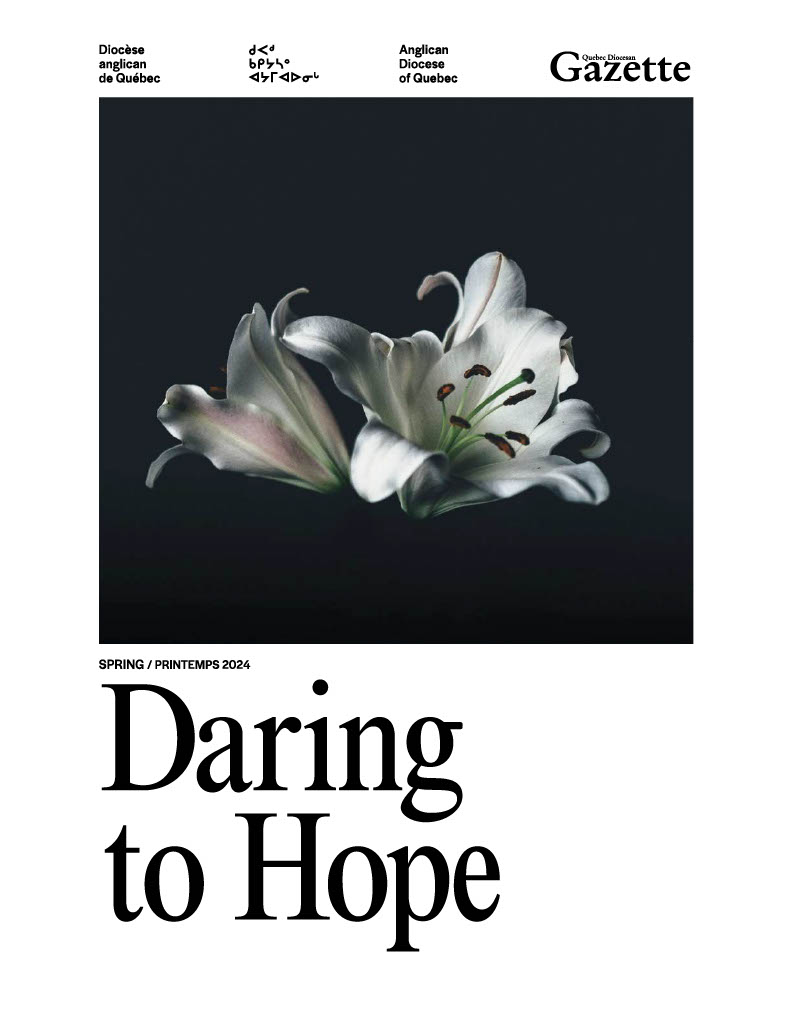
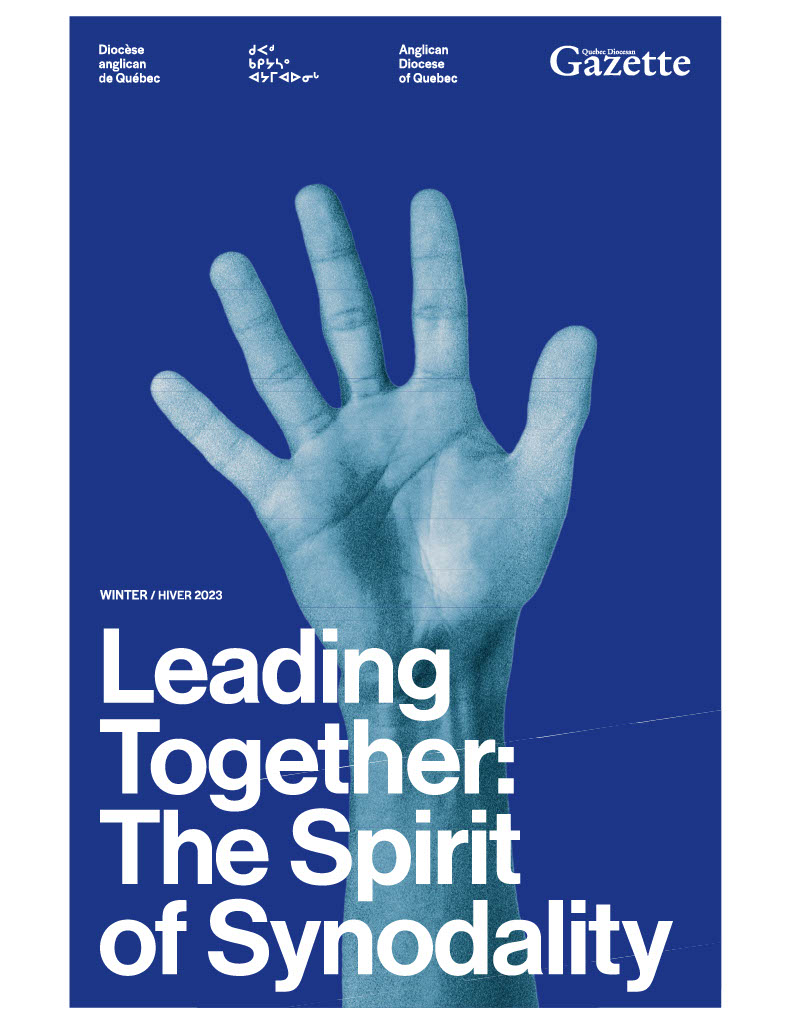
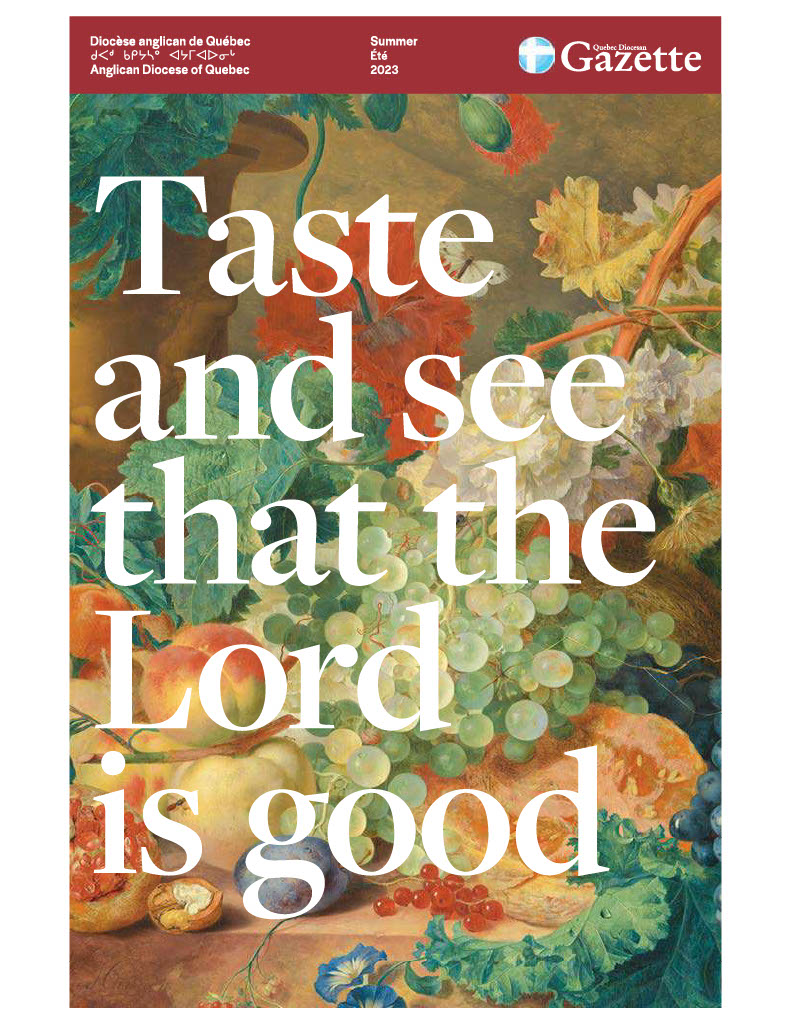

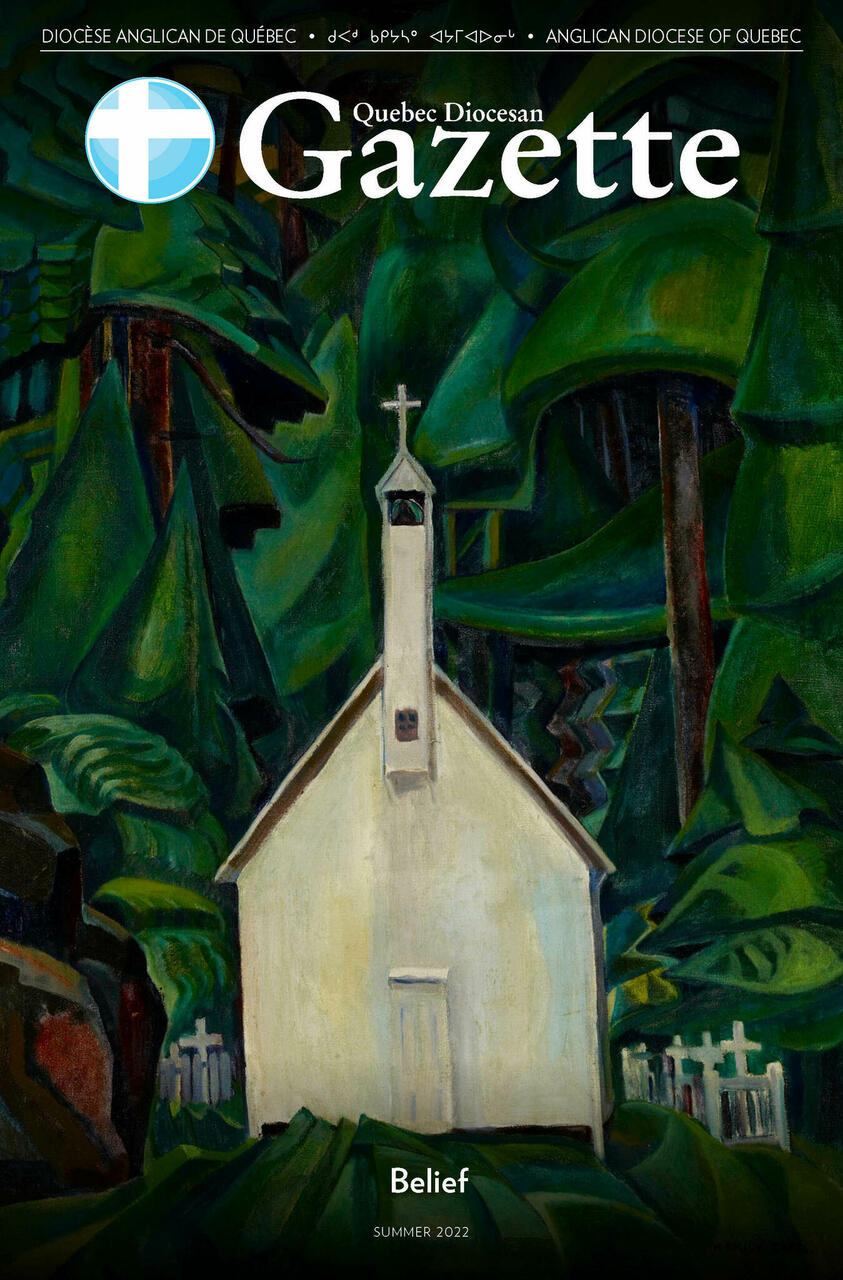
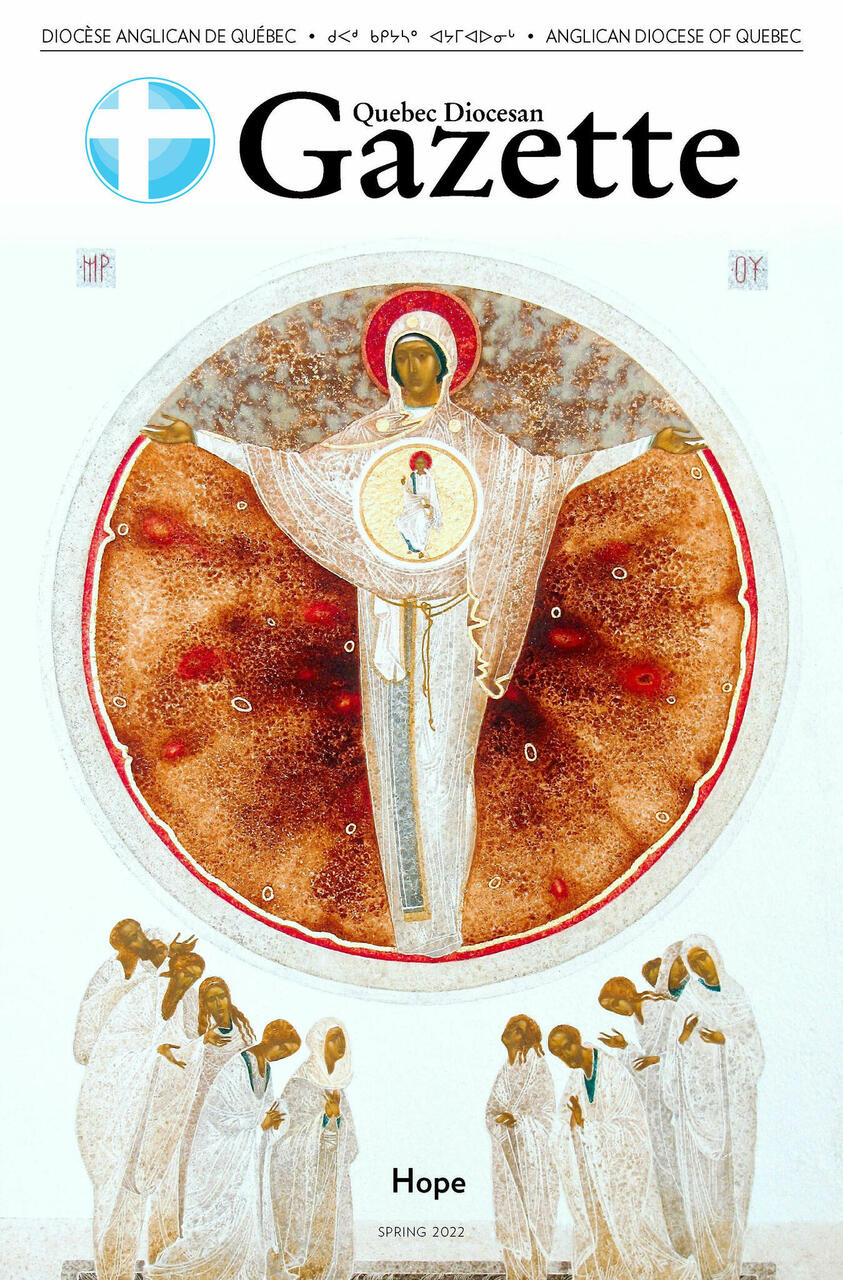



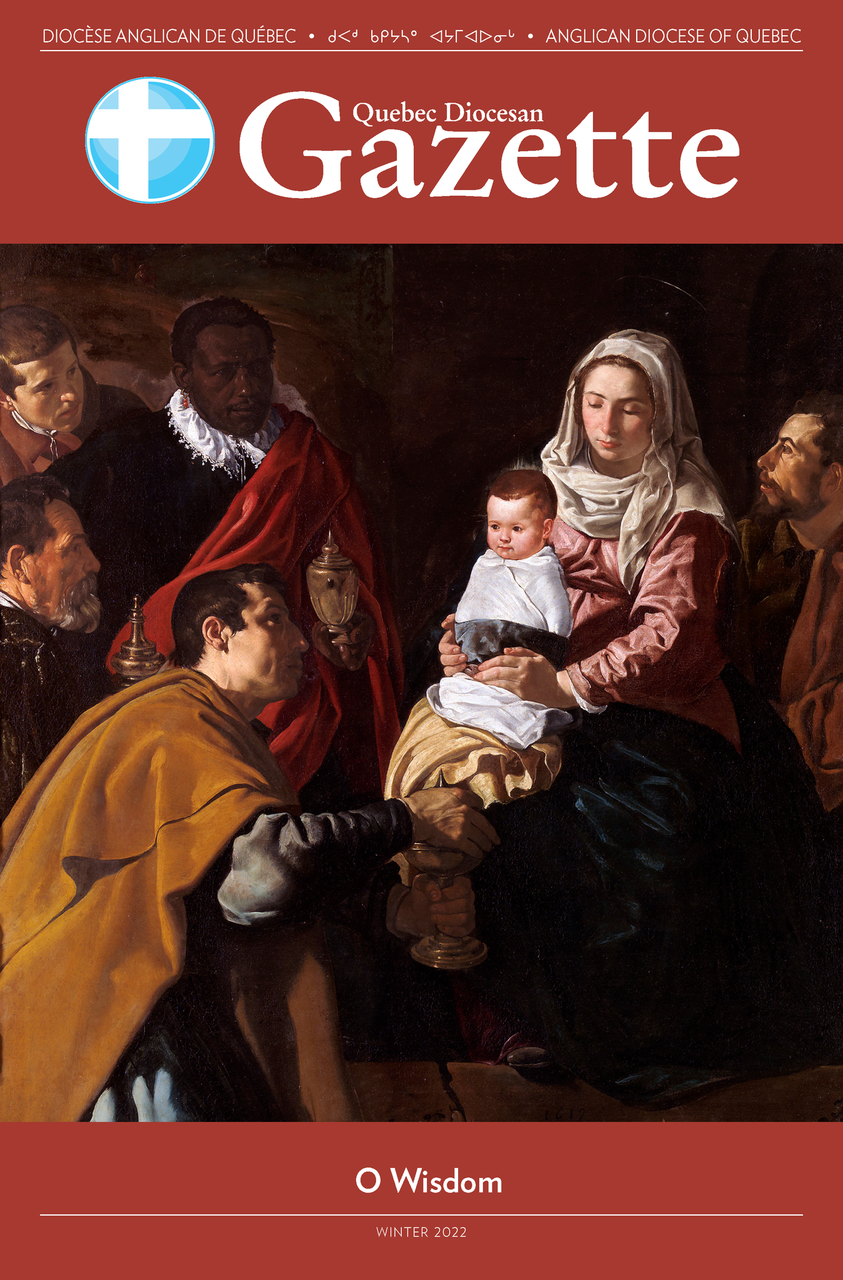
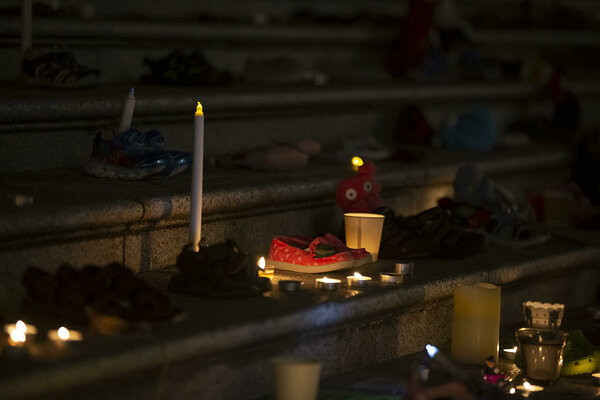
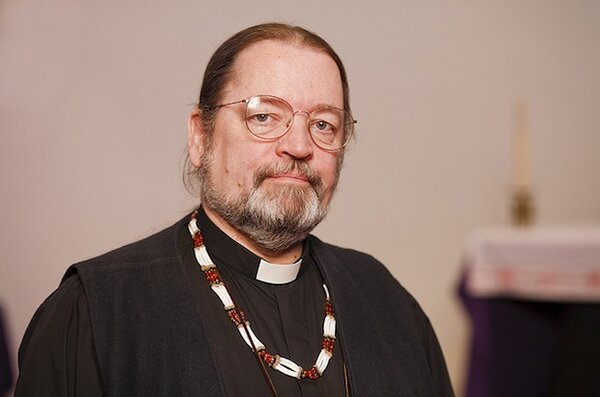
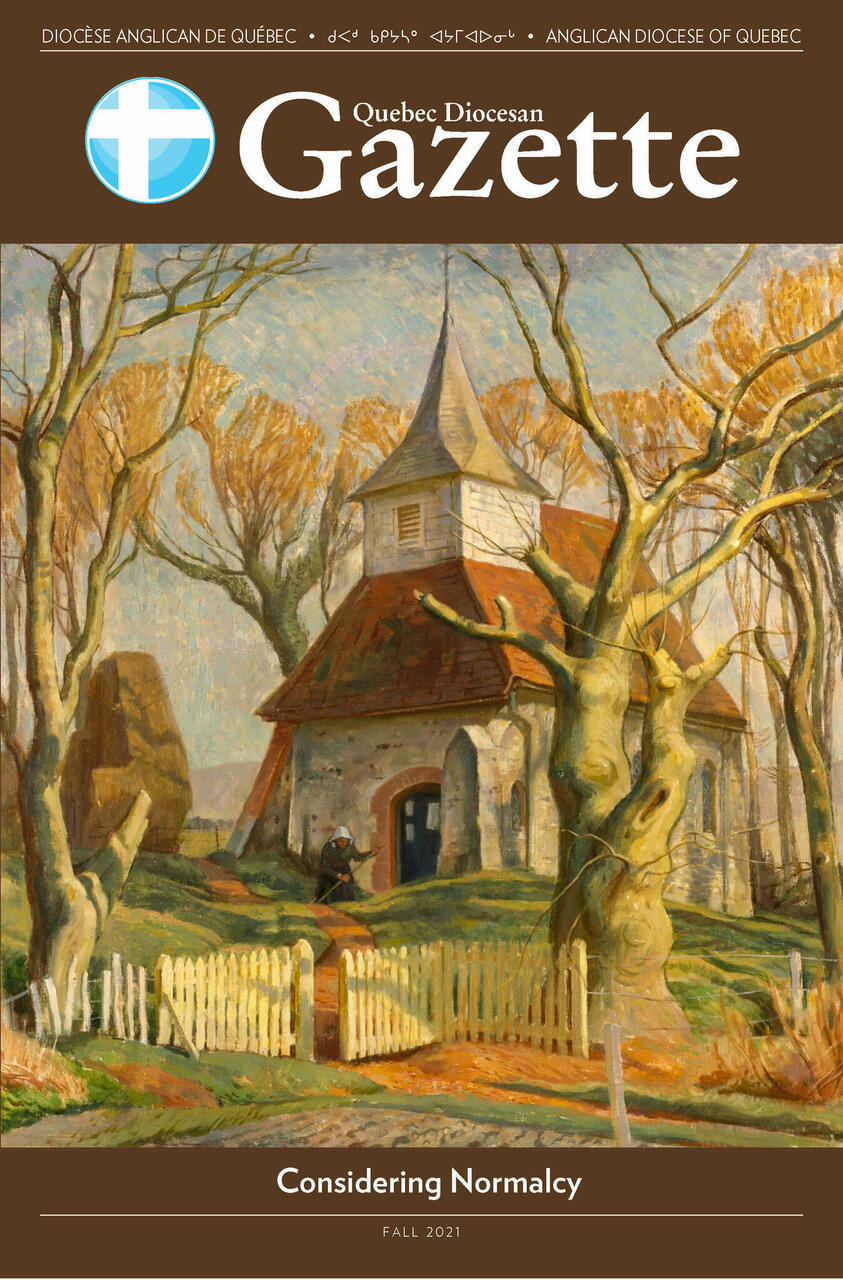

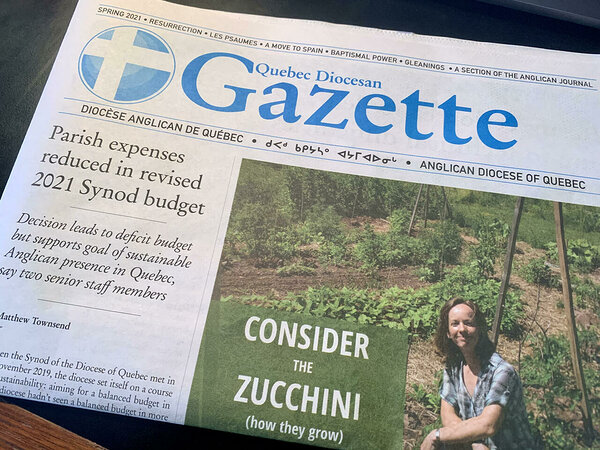

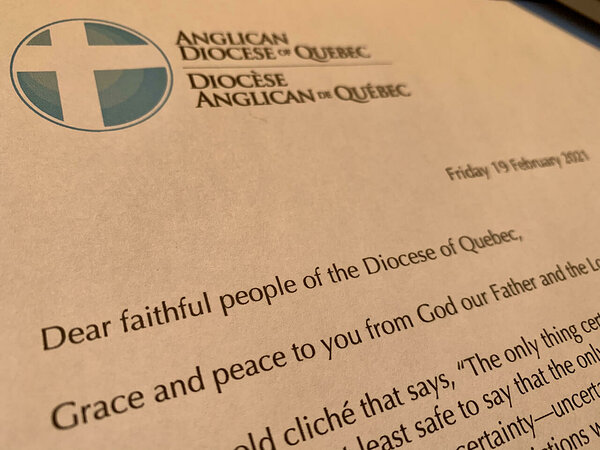

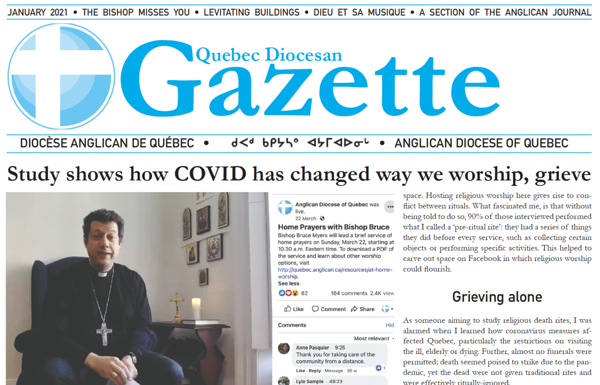

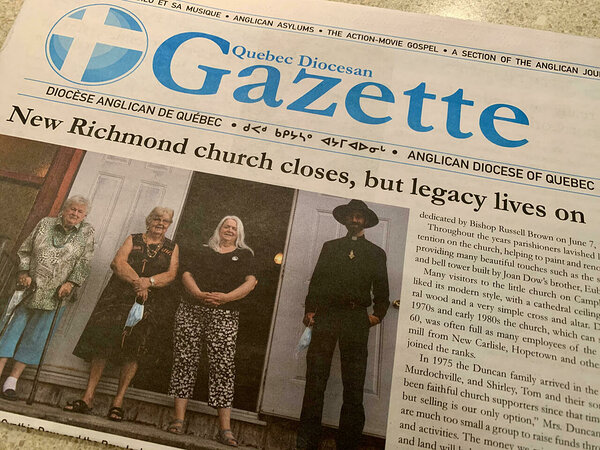
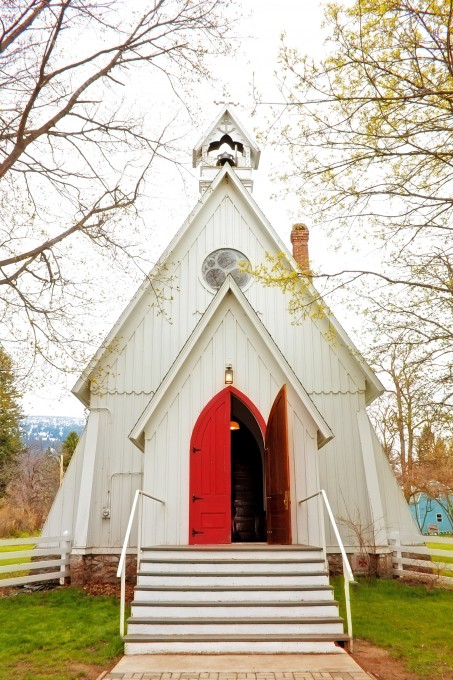
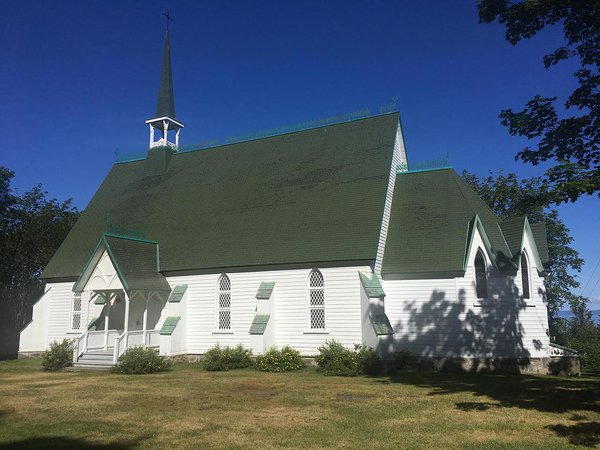
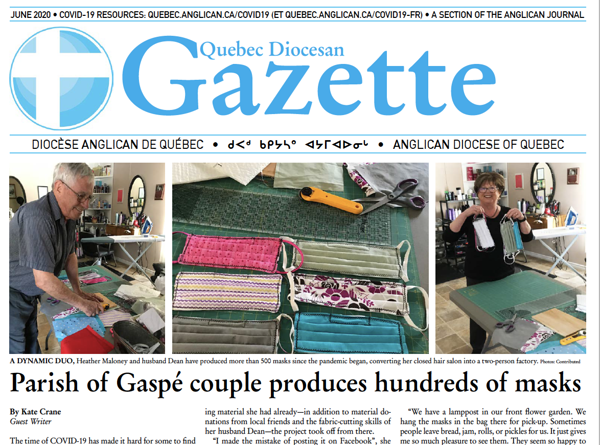

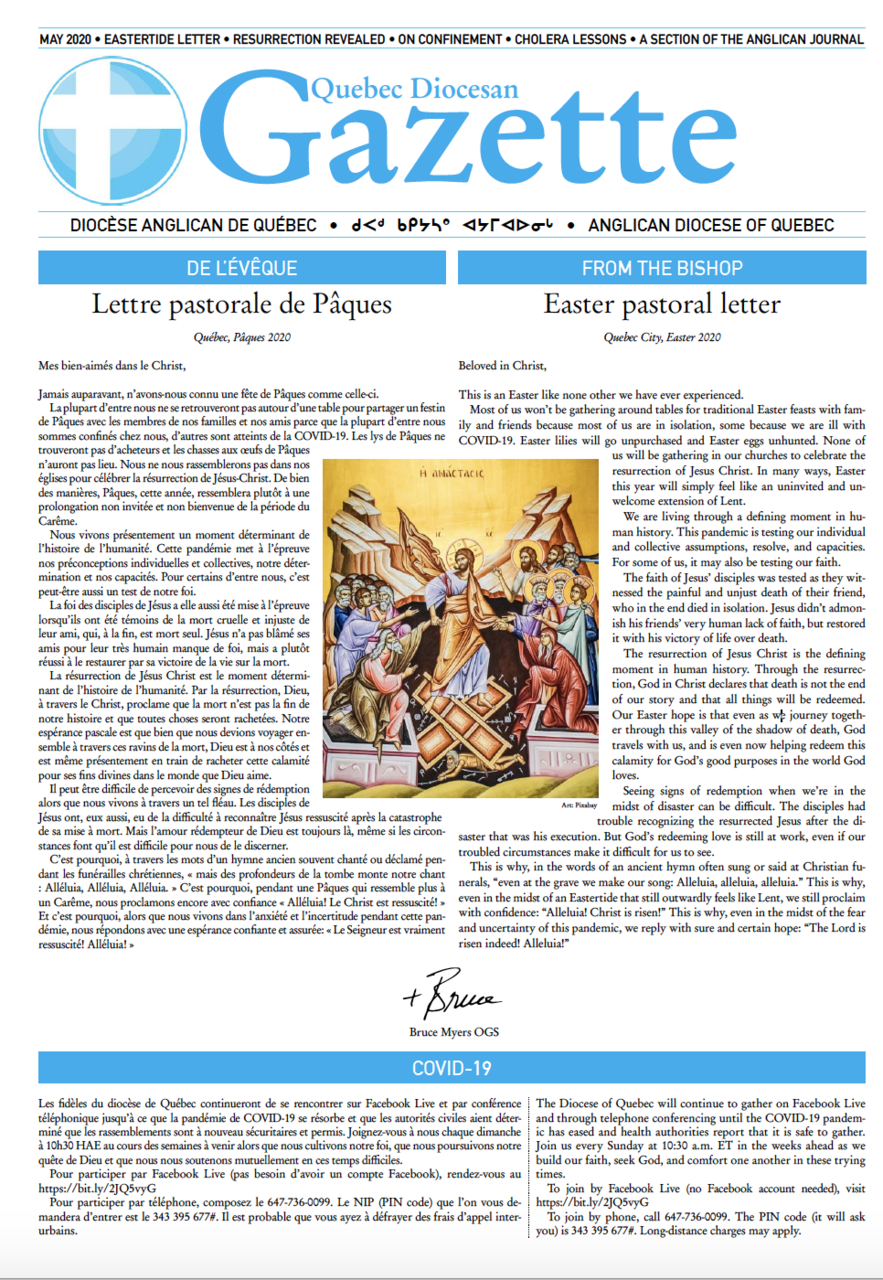
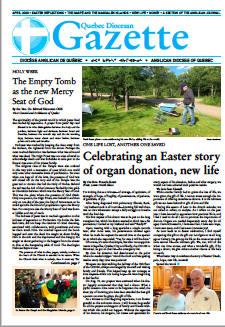
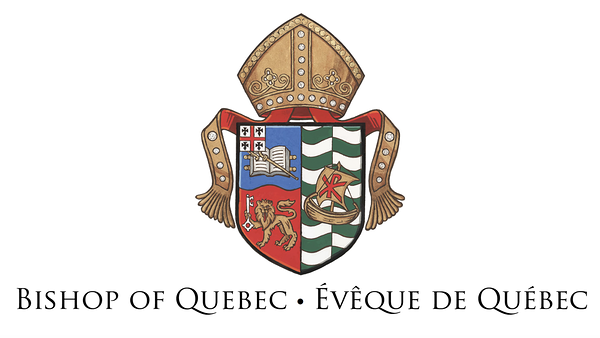
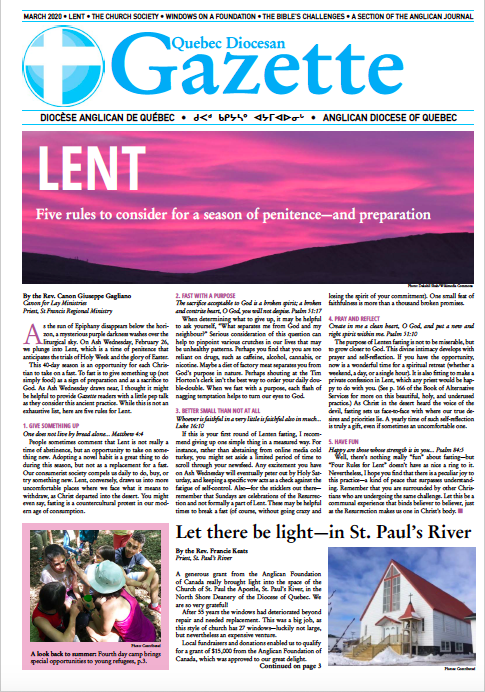
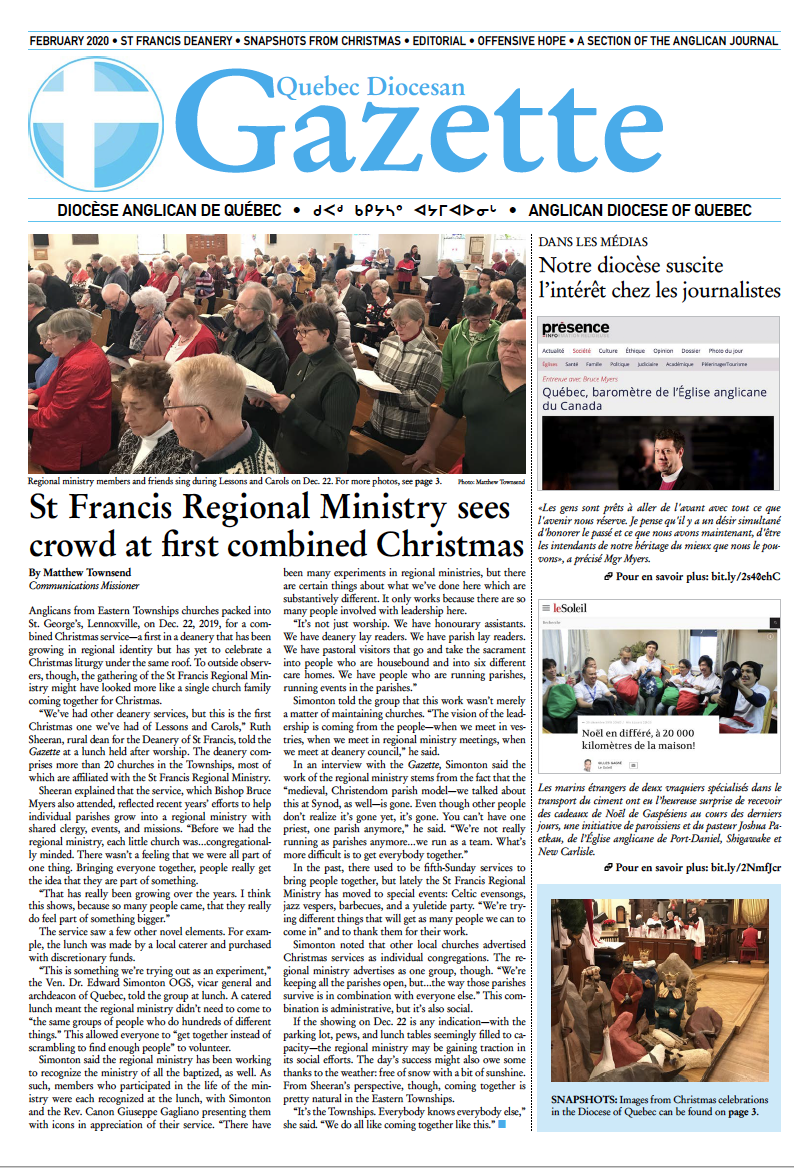
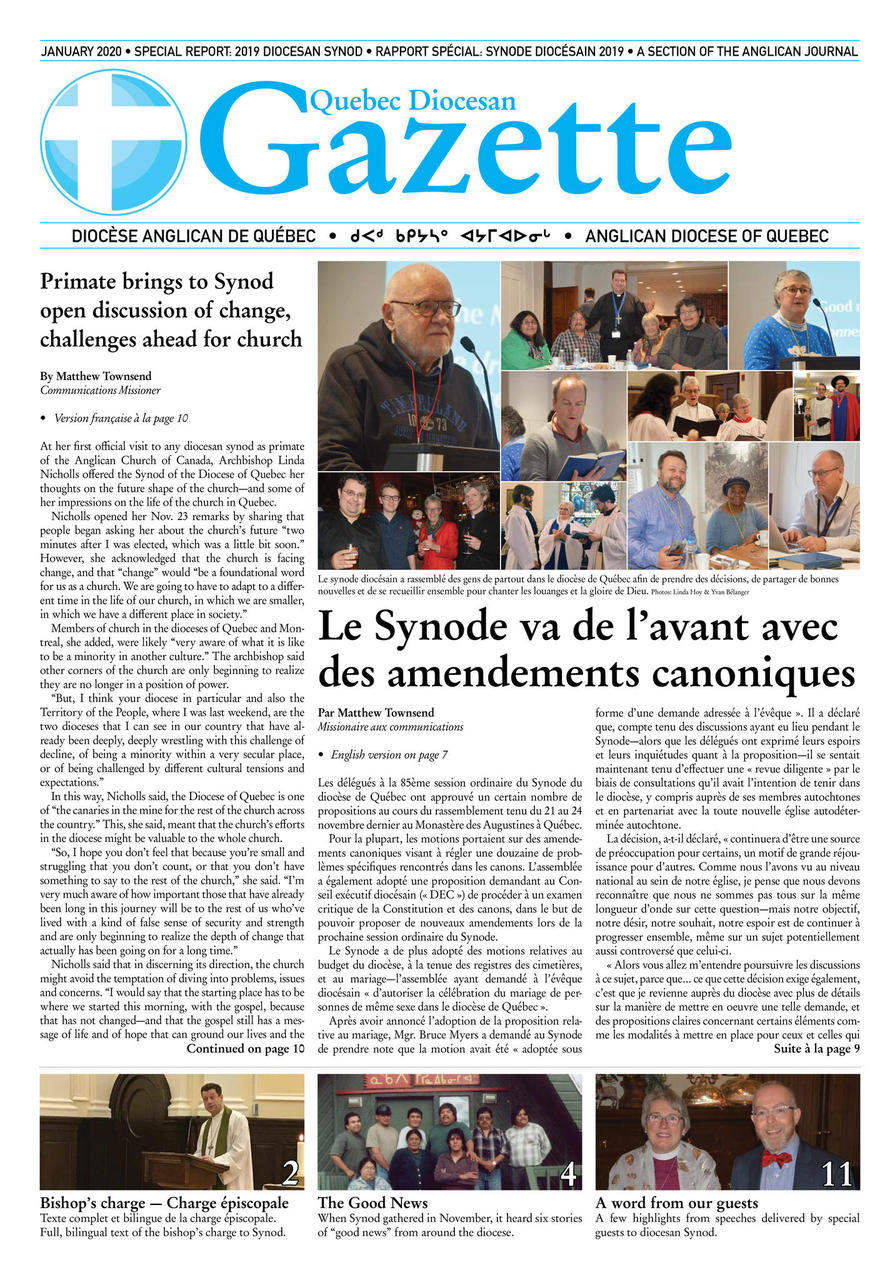
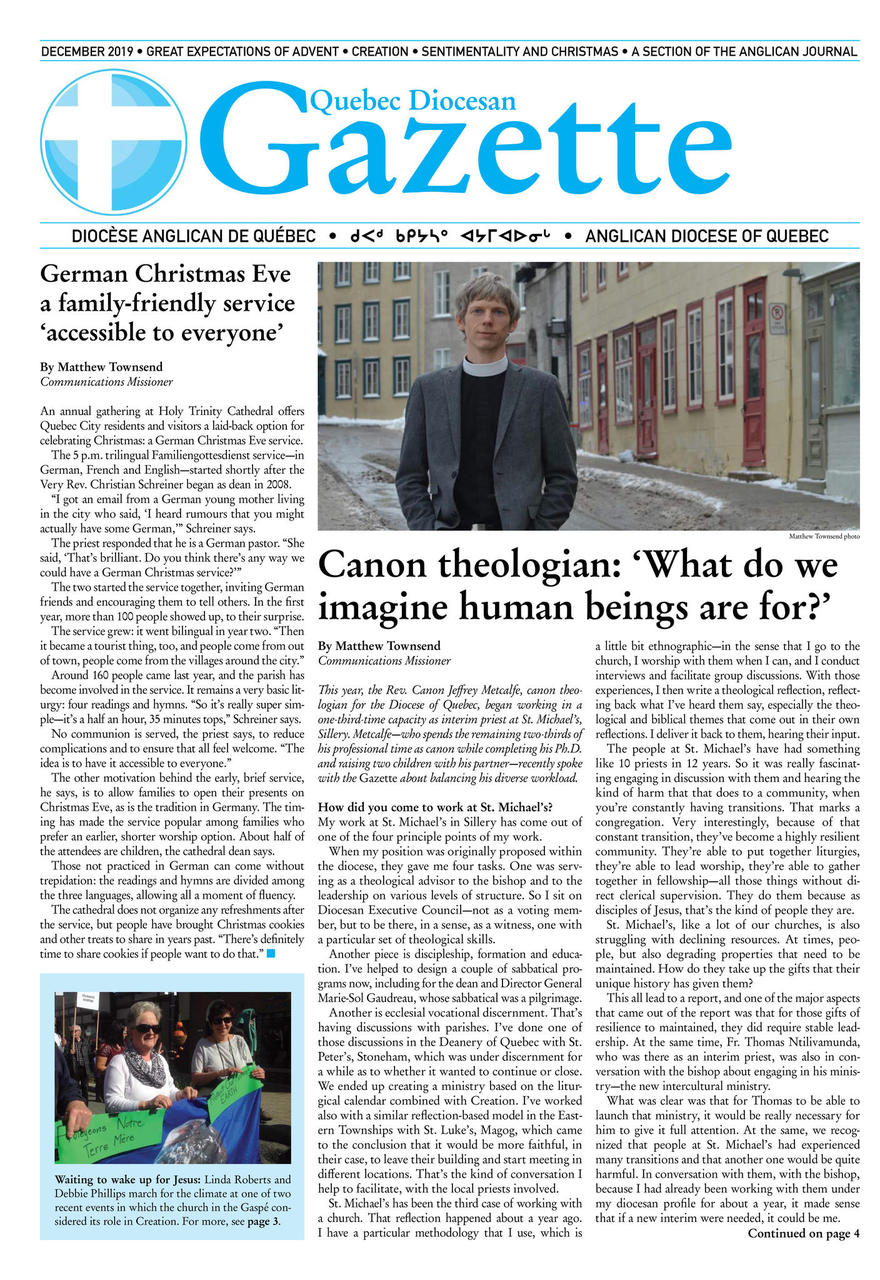
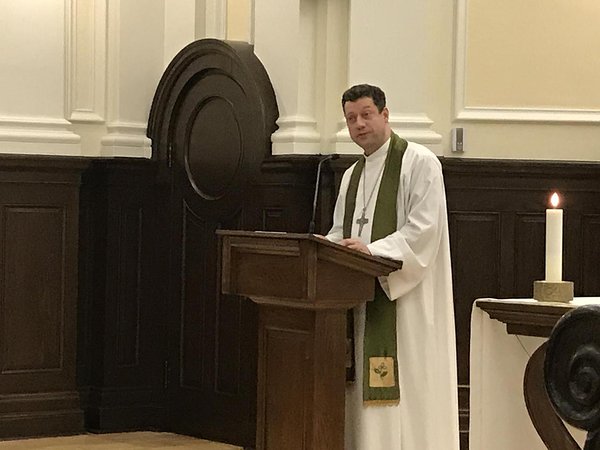
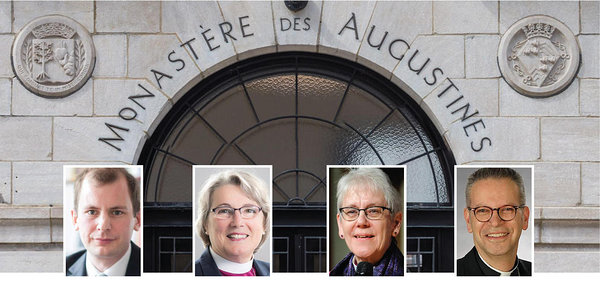

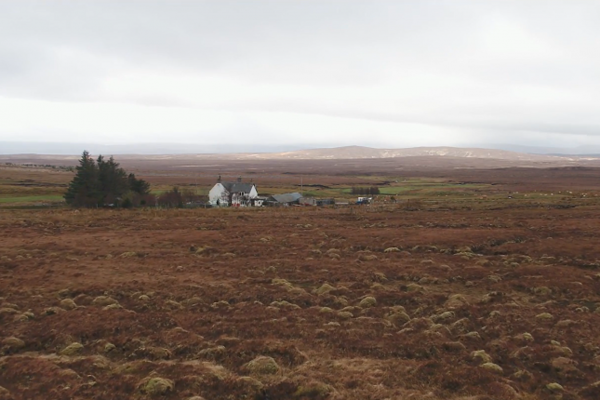
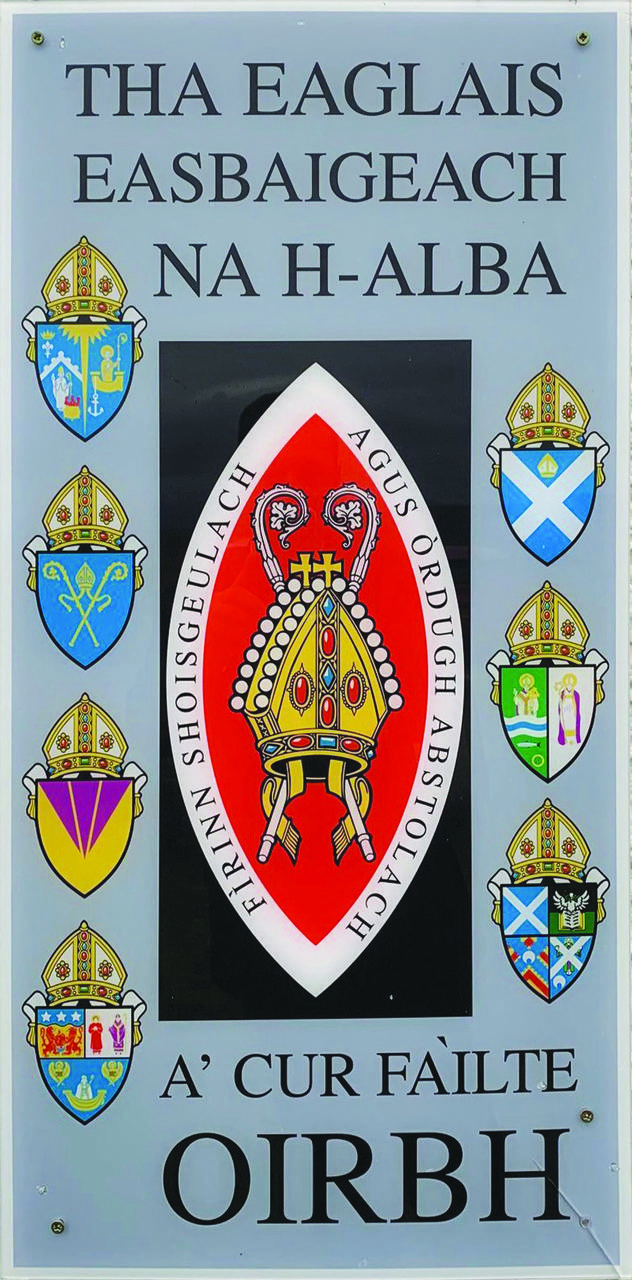
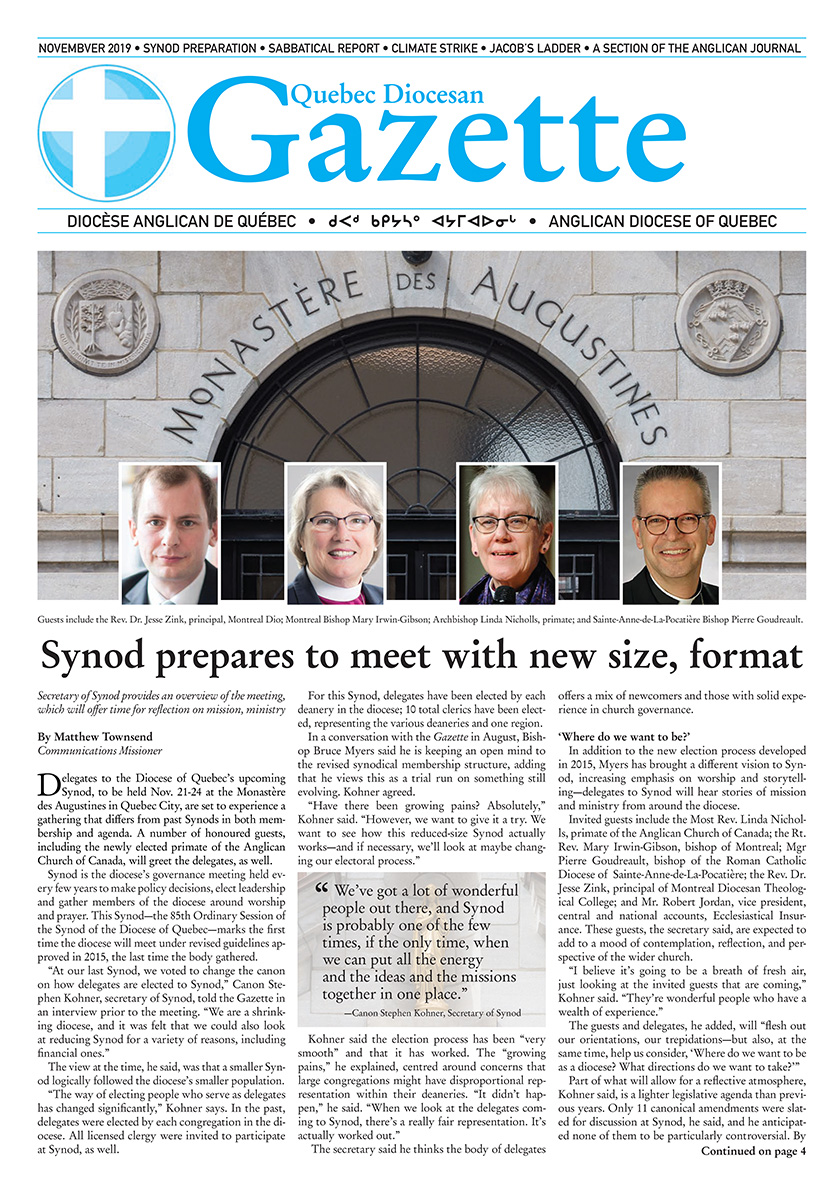


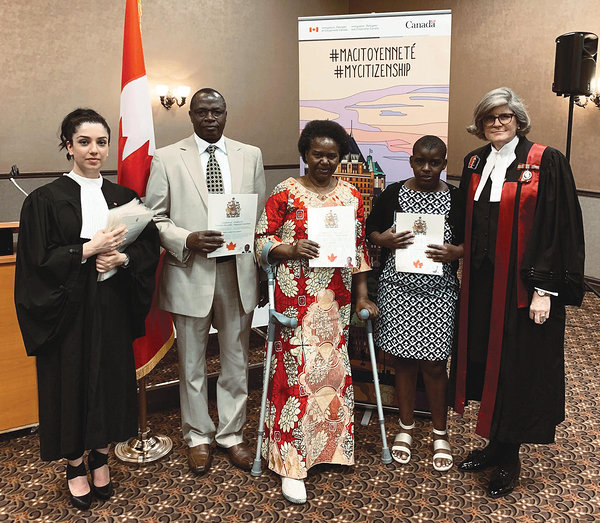
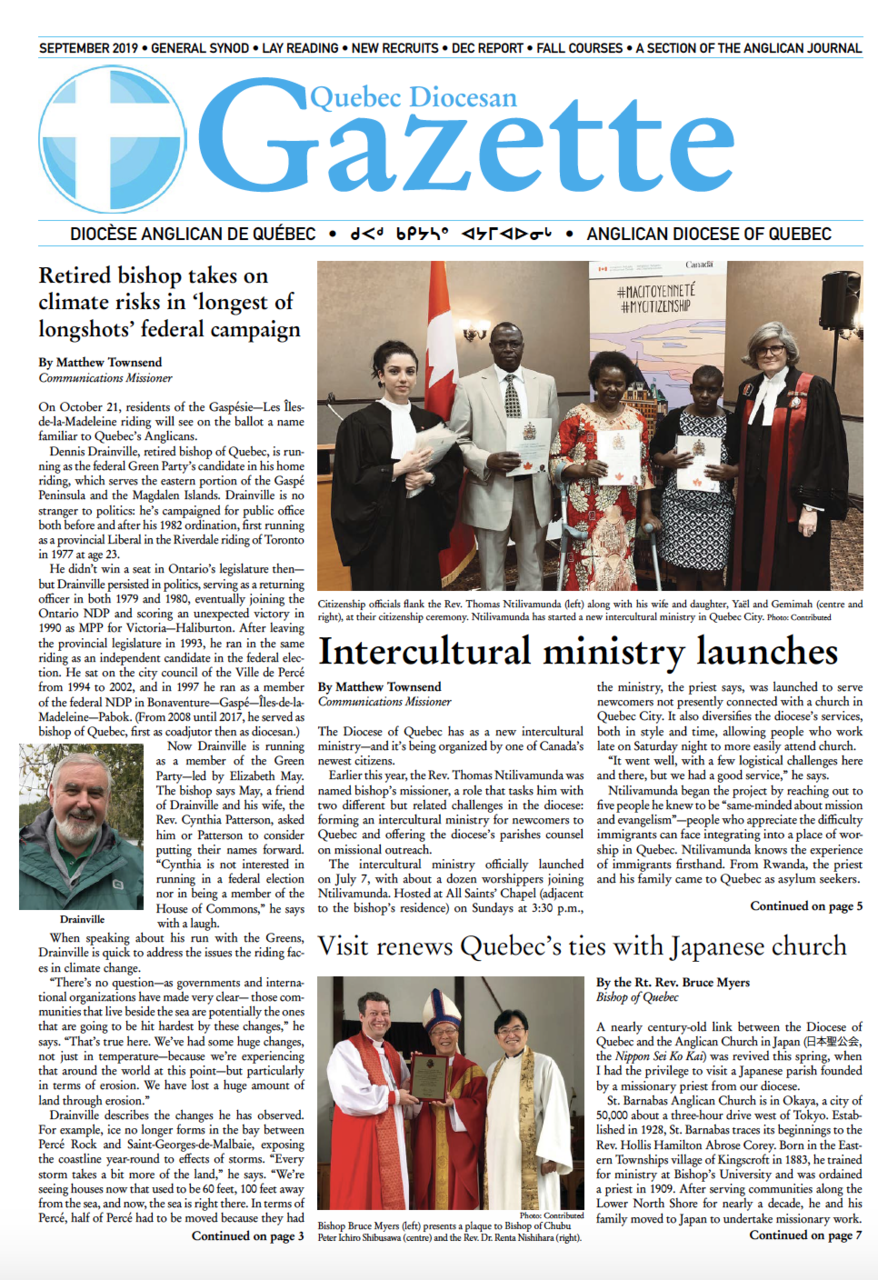
_large.jpg)
